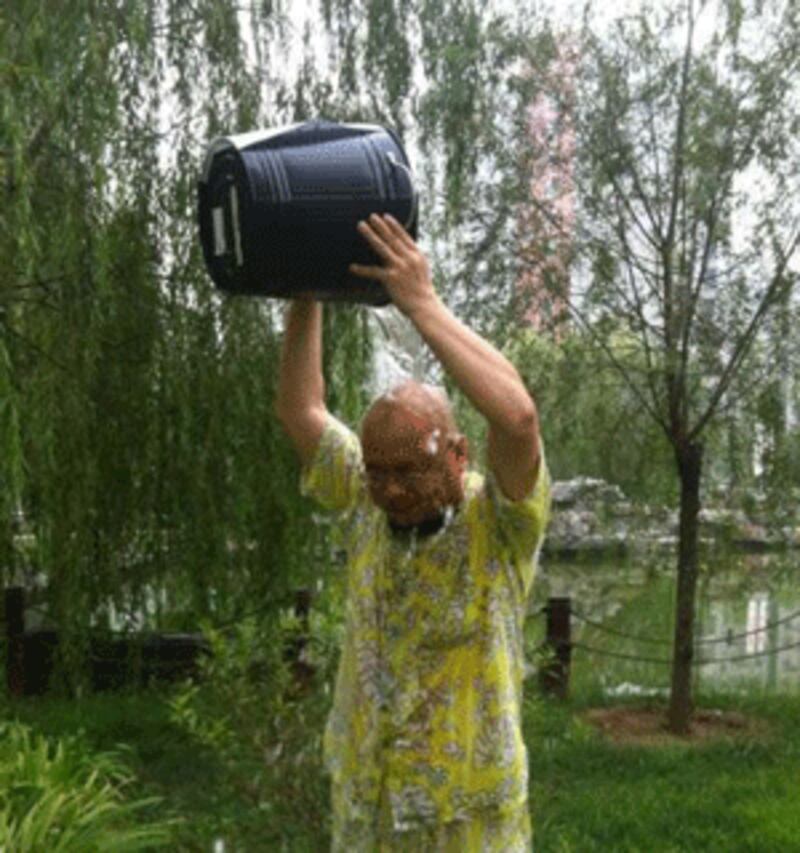Authorities in the southern Chinese city of Guangzhou have extended the criminal detention of three prominent rights lawyers on subversion charges after holding them for longer than the usual two-month period, relatives said.
Tang Jingling, Wang Qingying and Yuan Xinting were criminally detained on May 16, initially for "picking quarrels and stirring up trouble."
The charges were later changed to the more serious charge of "incitement to subvert state power."
The three were detained amid a nationwide crackdown on activists and family members of victims of the 1989 military crackdown on the Tiananmen Square student-led pro-democracy movement in the run-up to the 25th anniversary on June 4.
Tang's wife Wang Yanfang told RFA on Monday that the detention period runs from June 20, the date of her husband's formal arrest.
"We didn't find out [that their detention was being extended] until today," she said. "They were formally arrested on June 20, and we received the notification on June 20."
Wang said cases are normally passed to China's state prosecution service, paving the way for a trial, within two months of formal arrest.
"Now they have extended it, probably until Sept. 20," she said.
No meeting with defense lawyers yet
Wang said none of the detained lawyers has yet been granted permission to meet with their defense team.
"The lawyer applied for a meeting today, but we have to wait for notification," Wang said. "It's exactly the same as before; there have been no meetings."
Beijing-based lawyer Liu Xiaoyuan confirmed he had been hired to represent Tang by his wife at the weekend, bringing the number of defense attorneys to three.
"The Guangzhou police department accepted my brief...and told me to fill out an application form for meeting with a client," Liu said on Monday via the messaging app WeChat.
"The duty officer told me that the decision to extend Tang Jingling's detention had been made on Aug. 6," Liu wrote.
Lacking evidence?
Liu told RFA in an interview later on Monday that criminal detention periods may be extended in the first instance for one month.
"I don't know why they have extended it," he said. "It's probably because they are having difficulties collecting enough evidence to support the case."
He said police had told him that all decisions about meetings with the three detained lawyers are being referred to "higher up."
A second defense lawyer, Liu Zhengqing, said the charge sheet for Tang mentioned his involvement in "civil disobedience movements," a commemoration of the death of Mao-era dissident Lin Zhao, and a June 4 meditation event, as well as the campaign to end China's "hukou" household registration system linking access to education and other public services to a person's town of birth.
Meanwhile, Wang Qingying's wife Zeng Jieshan said she had been summoned by state security police in Guangzhou last Friday, who tried to get her to incriminate her husband.
"They called me in without any official procedures," she said. "I was in there for more than three hours."
"They said if I didn't cooperate, they'd take it all the way, and summons me for picking quarrels and stirring up trouble, or obstructing official duty," she said. "Or you could lose your job at any time."
'Ice-bucket challenge'

Zeng, who has already launched a vocal campaign for her husband's release, said online activists have recently started an "ice-bucket challenge" — which started in the U.S. as a way to raise funds to combat ALS, or Lou Gehrig’s disease — on behalf of China's prisoners of conscience.
"A lot of people are supporting this," she said. "I have seen a lot of photos posted online already, 40 or 50."
China has launched a clampdown in recent years on its embattled legal profession, with many civil rights law firms struggling to renew their licenses.
Rights groups say there is little purpose to the annual licensing scheme for lawyers and law firms, besides the exertion of state control over the legal profession.
New rules introduced in the past two years ban lawyers from defending certain clients, and leave them vulnerable to being charged themselves with subversion if they defend sensitive cases.
Out of more than 204,000 lawyers in China, only a few hundred risk taking on cases that deal with human rights, particularly when linked to the rights of Falun Gong followers, according to Amnesty International.
Reported by Qiao Long for RFA's Mandarin Service, and by Grace Kei Lai-see for the Cantonese Service. Translated and written in English by Luisetta Mudie.

